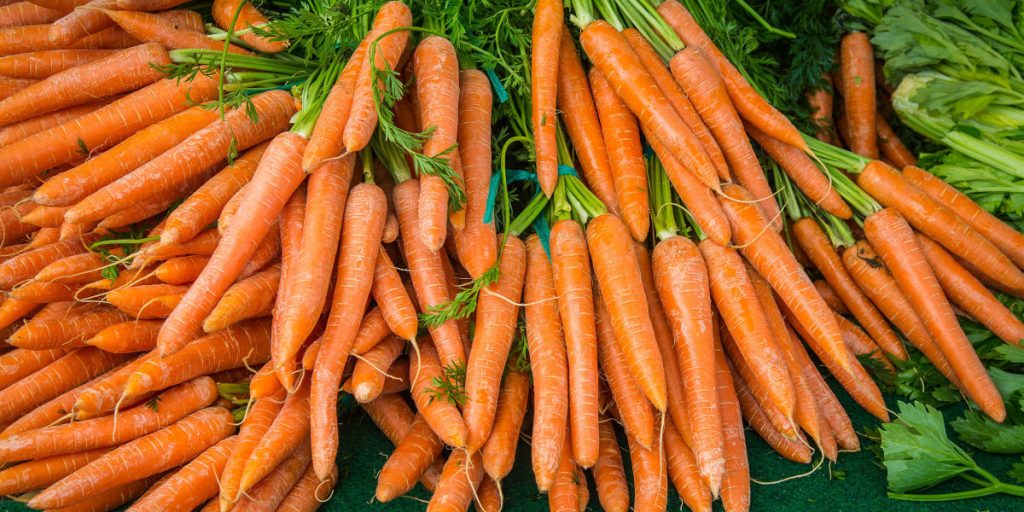[ad_1]
Improving the storage of carrots and parsnips post harvest would help maintain their nutritional value and increase the availability of vegetables grown in the UK over a longer period.
The Vegetable Consultancy Services UK Ltd (VCS) agronomy service and research provider, is working in close collaboration with with farming and fresh produce company Frederick-Hiam Ltd and Crop Health and Protection (CHAP) on the INSPeCT project, which has recently gained funding from Innovate UK’s Better Food for All programme.
Storage of carrots challenging
Currently, it is not unusual to store root vegetables in the field covered in a thick layer of straw to protect them from freezing.
James Fortune of VCS explains that this leads to wastage and loss of quality: “The root vegetables are left in the soil, which makes them vulnerable to soil-borne disease and pests and also damage from freezing.
“Harvesting is also problematic. The peak time for harvest is in the lead-up to Christmas but the soil can be too wet or frozen to get the crop out of the ground and this activity causes soil damage and compaction. Strawing is also very expensive and has a significant effect on the cost of production.
“The project will focus on investigating new post-harvest storage practices to remove and minimise the current need for in-field storage for carrots and parsnips. It will also explore technologies such as advanced sensors and software systems to monitor the crops throughout the supply-chain journey.”


Better Food for All: Innovation for Improved Nutrition
The project is funded by Innovate UK through the Better Food for All: Innovation for improved nutrition, early-stage competition. Other Agri-TechE members have also gained funding including Antler Bio.
The funding is aimed at enhancing food quality and includes:
- innovative technologies and processes to improve the nutritional quality of foods and ingredients
- functional foods: foods with specific health benefits
- stratified nutrition: products aimed at particular demographics or groups
- fortified and biofortified foods: including processed foods, convenience foods and raw materials produced at farm level
- plant-based and alternative proteins: alternative protein sources for healthier and more sustainable diets, and processes that are accepted by consumers to incorporate these alternative protein sources into food products
- preservation, packaging and storage technologies: to increase shelf life including for healthy convenient foods and nutritious perishable foods
The funding for this competition has closed; check the Funding Finder for open calls.
Source link


